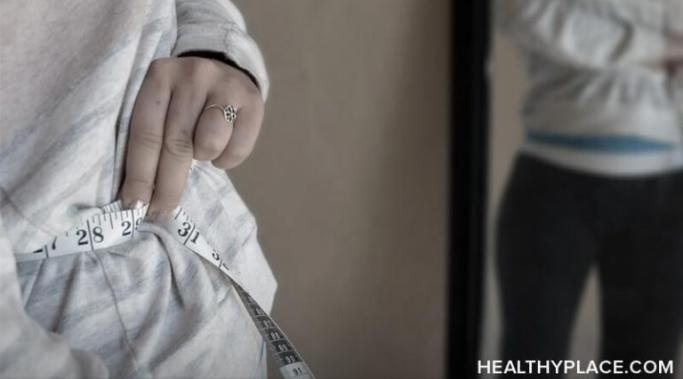Blogs
Anxiety made me "that annoying friend" early in life. I vividly remember the first time that my generalized anxiety disorder (GAD) inserted itself, without invitation, into my relationships. I was in third grade, playing in the sandbox during recess when I found out that Jess (names changed) had invited Katrina to see the new Shrek movie but hadn't extended the invitation to me. I remember being devastated and insecure. For the remainder of recess, I moped around the chain-link fence by myself, kicking up patches of dirt while negative thoughts swarmed my head. Why hadn't she invited me? What was wrong with me? These tentative thoughts soon turned into statements taken as fact. My friends hate me. Nobody likes me. I am an annoying friend and useless. I didn't talk to anyone else for the rest of that day.
Most people who are in recovery from alcoholism have drinking dreams from time to time. It can be a truly scary experience, especially when you have been sober for a while. When I first got sober, I used to have drinking dreams much more frequently than I do now, but I do still have them once in a while. My drinking dreams are different now than they used to be, in both frequency and content, but they are always disturbing and sometimes downright traumatizing. So, what is a drinking dream? Why do people in recovery have them and what do they mean? Drinking dreams can be very upsetting, but when you know what they are and that they are a normal part of recovery, you’ll be better armed to deal with them.
Complex posttraumatic stress disorder (PTSD) misdiagnosis happens out of ignorance. Although many people are now aware of the prevalence of sexual abuse, but not nearly enough people are aware of the lifelong effects of the abuse. Unfortunately, this includes some mental health professionals who can end up missing the diagnosis of complex posttraumatic stress disorder (PTSD) and instead give the person a misdiagnosis.
Dealing with boundary issues can cause anxiety, but it's possible to reduce that anxiety and establish healthy boundaries. Boundaries refer to your sense of yourself as well as when, where, how much, and from whom you'll give and take. The ability to establish boundaries helps your mental health as well as your relationships with others; however, anxiety can cause the inability to create boundaries just as the lack of boundaries can cause anxiety. Despite the double-edged sword, there are ways you can reduce anxiety around boundary issues to improve your quality of life.
Many people find it challenging to cope with changes in life, and for those of us with depression, it can be especially difficult. Whether it's a new job, a child's graduation, the loss of a loved one, or the birth of a child, any change can be stressful and can potentially cause us to have a harder time with our depression. So, when changes come, as they inevitably will, how do we cope?
There are many techniques that can help you build self-esteem on your own, but sometimes, therapy for low self-esteem is necessary. You might feel you need therapy for self-esteem issues if they are showing no signs of improvement. Also, your low self-esteem may be interfering with your life – you may be so self-critical that you notice this impacting your work, social life, and relationships. Therapy for low self-esteem can help you address the negative patterns of thinking and behavior that you’re trapped in, as well as allow you to address the root causes of your feelings of unworthiness.
If you have been struggling with self-harm and are considering professional help as an option, you may have already come across a type of treatment called dialectical behavior therapy (DBT) for ending self-harm. Though many find success with other common therapies such as cognitive behavioral therapy (CBT), DBT has proved uniquely suited to patients who engage in self-harming behavior.
I love where I live. But unfortunately, I recently discovered that, against all my wishes, I may have to move at the end of the month. I'm no longer secure in my home.
Can you ever fully recover from an eating disorder? It’s been over five years since I started my recovery for bulimia. I consider myself to be "free" from the vicious binge-purge cycle, but disordered thinking sometimes hovers in the background like a ghost. It’s something that I continue to manage, often with acceptance and compassion, sometimes with a tinge of frustration and shame, and always reminding myself that thoughts won’t necessarily lead to actions.
There's no doubt that travel impacts our mental health. Travel can have many mental health benefits, but it can also be a source of stress. Recently, I traveled abroad and experienced the mental health advantages and challenges brought about by travel. In retrospect, there are a few things I wish I would have known before my trip. Next time I travel, I will keep in mind how travel impacts mental health so I can be better prepared.










I believe she will only be able to rid herself of her demons, and hopefully her BPD as well, when she's ready to confront the abuse of her father. If she can put the blame where it belongs, she may stop projecting that victim/perpetrator cycle on the present men in her life. These demons are a metaphor for the purgatory she has created for herself. That reality has consequences in the real world, but it need not be real in the tangible sense. Exorcising her demons will require the expenditure of real physical energy and probably the destruction of aspects of her personality. If this ever happens, and it's possible but not probable, then these demons will evaporate. They are only as real as one's personality is real. In short, reality is not the question, it's what you make of the things you feel to be real.